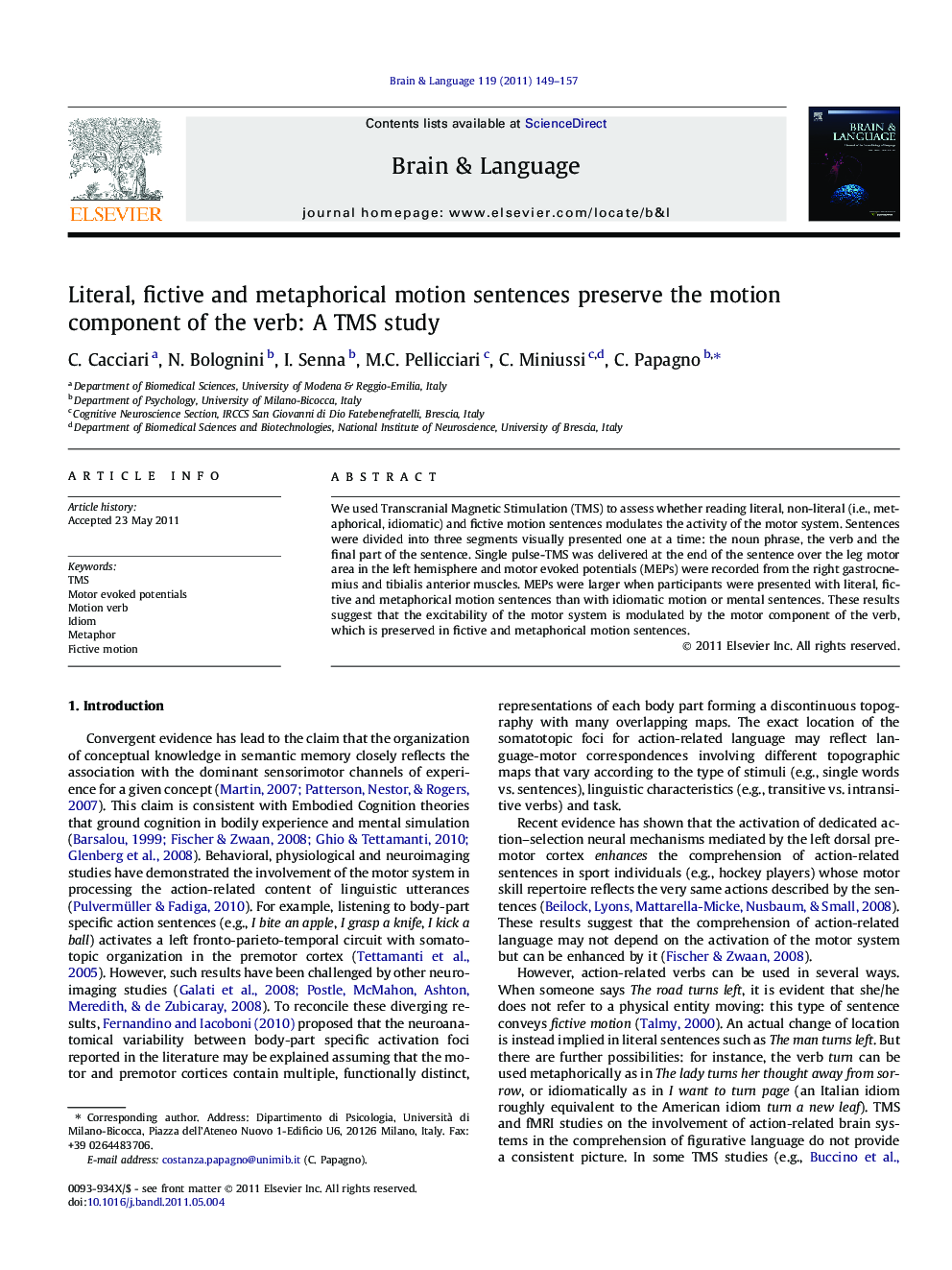| Article ID | Journal | Published Year | Pages | File Type |
|---|---|---|---|---|
| 925481 | Brain and Language | 2011 | 9 Pages |
We used Transcranial Magnetic Stimulation (TMS) to assess whether reading literal, non-literal (i.e., metaphorical, idiomatic) and fictive motion sentences modulates the activity of the motor system. Sentences were divided into three segments visually presented one at a time: the noun phrase, the verb and the final part of the sentence. Single pulse-TMS was delivered at the end of the sentence over the leg motor area in the left hemisphere and motor evoked potentials (MEPs) were recorded from the right gastrocnemius and tibialis anterior muscles. MEPs were larger when participants were presented with literal, fictive and metaphorical motion sentences than with idiomatic motion or mental sentences. These results suggest that the excitability of the motor system is modulated by the motor component of the verb, which is preserved in fictive and metaphorical motion sentences.
► The sensory-motor grounded representation is involved in comprehension. ► The motor component of the verb seems preserved in fictive and metaphorical motion. ► The activation of motor representations is influenced by the linguistic context.
